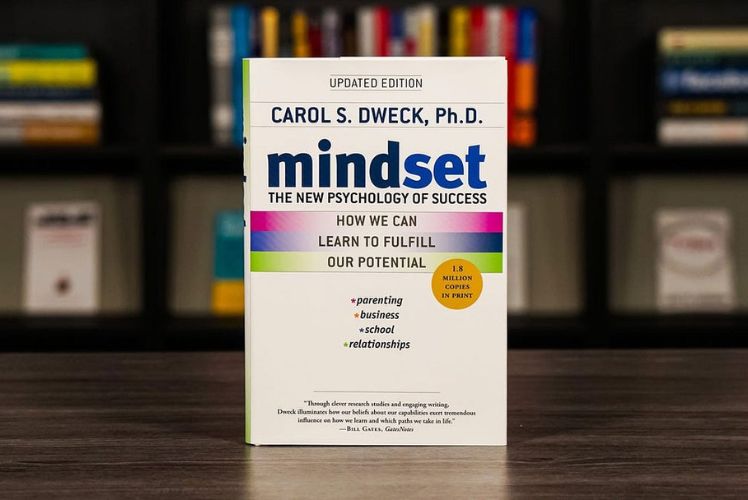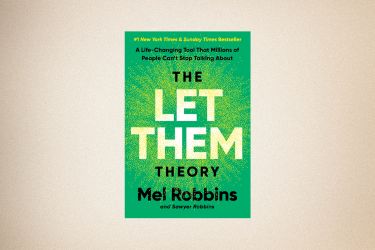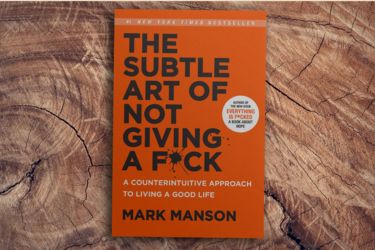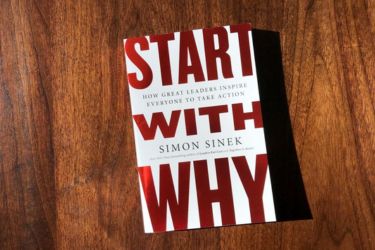How we think about our abilities shapes everything from school performance to career success. Carol S. Dweck's groundbreaking book "Mindset: The New Psychology of Success" reveals a simple yet powerful truth that has transformed our understanding of achievement. Through decades of research at Stanford University, Dweck discovered that our beliefs about intelligence and talent dramatically influence our outcomes in life.
The book introduces two fundamental mindsets: fixed mindset, where people believe abilities are unchangeable, and growth mindset, where people see abilities as developable through effort and learning. This distinction affects how we handle challenges, setbacks, and opportunities across every area of human endeavour. Dweck's research shows that those with a growth mindset consistently outperform their fixed mindset counterparts.
The psychology of success isn't about raw talent or intelligence levels. Instead, it's about how we approach learning, failure, and improvement. We'll explore how this book can change the way you think about your own potential and provide practical strategies for developing a growth mindset in yourself and others.
Key Takeaways
- Fixed mindset believes abilities are unchangeable whilst growth mindset sees them as developable through effort
- Research demonstrates that growth mindset leads to better performance across education, business, and personal relationships
- Practical strategies exist to shift from fixed to growth thinking patterns for improved resilience and achievement
About the Author: Carol S. Dweck
Carol S. Dweck stands as one of psychology's most influential researchers, bringing decades of expertise to her groundbreaking work on motivation and mindset. Her academic journey spans multiple prestigious institutions, whilst her research has fundamentally changed how we understand human potential and learning.
Biography and Academic Background
Carol S. Dweck earned her Ph.D. in Social and Developmental Psychology from Yale University. Her academic career began at prestigious institutions including Princeton, Yale, and New York University before joining Stanford.
Throughout her career, Dweck has focused on motivation, personality, and development. She studied what drives people to learn and succeed. Her work examines how beliefs about ability affect performance.
Dweck's research spans over four decades. She has published numerous academic papers and books. Her work reaches both academic and popular audiences.
Before writing "Mindset," she conducted extensive research on children's motivation. This research formed the foundation for her mindset theory. Her studies revealed how praise and feedback shape student behaviour.
Major Contributions to Psychology
Dweck's most significant contribution is the growth versus fixed mindset theory. This concept revolutionised understanding of human motivation and achievement.
She discovered that people hold different beliefs about their abilities. Some believe talents are fixed traits. Others believe abilities can develop through effort and learning.
Her research shows these beliefs profoundly impact behaviour. Fixed mindset individuals avoid challenges to protect their image. Growth mindset individuals embrace challenges as learning opportunities.
Dweck's work extends beyond education. She has applied mindset research to business, relationships, and parenting. Her findings influence how organisations approach employee development and feedback.
The concept of "learned helplessness" connects to her work. Students with fixed mindsets often stop trying when faced with difficulty. This pattern mirrors depression-related behaviours.
Role as Stanford Psychologist
At Stanford University, Dweck serves as Professor of Psychology. She leads research in developmental, social, and personality psychology. Her position allows her to conduct large-scale studies on motivation.
Stanford provides the resources for her extensive research programmes. She works with students and colleagues to expand mindset research. The university's reputation helps spread her findings globally.
As a Stanford psychologist, Dweck publishes in top-tier academic journals. She also speaks at conferences worldwide. Her academic position lends credibility to her popular writing.
Her role involves training the next generation of psychologists. Many of her students continue researching motivation and mindset. This ensures her work's continued development and application.
Core Concepts of 'Mindset: The New Psychology of Success'
Dweck's research identifies two distinct ways people think about their abilities. These mindsets shape how we respond to challenges and failures in every area of life.
Definition of Mindset
A mindset refers to our beliefs about the nature of our abilities and talents. It acts as a mental framework that influences how we interpret situations and respond to setbacks.
Dweck discovered that our mindset affects our motivation and behaviour. When we believe our abilities can change, we approach challenges differently than when we think our skills are fixed.
Mindsets influence several key areas:
- How we handle criticism
- Our response to failure
- The effort we put into learning
- Our willingness to take on challenges
The psychology behind mindsets runs deeper than simple positive thinking. Our beliefs create a cascade of thoughts and actions that either help or hinder our progress.
These mental frameworks operate automatically. We often don't realise how our mindset shapes our daily decisions and long-term outcomes.
Fixed Mindset Explained
People with a fixed mindset believe their abilities, intelligence, and talents are static traits. They think these qualities cannot be significantly developed through effort or practice.
This mindset creates a need to prove oneself constantly. Individuals worry about looking smart rather than learning new things.
Fixed mindset characteristics include:
- Avoiding challenges to prevent failure
- Giving up easily when facing obstacles
- Viewing effort as a sign of weakness
- Ignoring useful negative feedback
- Feeling threatened by others' success
When someone with a fixed mindset fails, they often conclude they lack ability. This leads to decreased motivation and avoiding similar challenges in the future.
They prefer tasks they know they can complete successfully. This limits their growth and keeps them within their comfort zone.
Growth Mindset Defined
A growth mindset centres on the belief that abilities can be developed through dedication and hard work. People with this mindset view talent as a starting point, not a final destination.
They embrace challenges as opportunities to learn. Setbacks become chances to improve rather than evidence of inadequacy.
Growth mindset traits include:
- Embracing challenges eagerly
- Persisting through obstacles
- Seeing effort as the path to mastery
- Learning from criticism
- Finding inspiration in others' success
This mindset creates a love of learning. People focus on the process of improvement rather than just the end result.
They understand that the brain can form new connections throughout life. This knowledge makes them more willing to tackle difficult tasks and persist through struggles.
Growth mindset individuals view failure as information. They ask what they can learn from mistakes instead of taking them personally.
Comparing Fixed and Growth Mindsets
Fixed and growth mindsets create completely different ways of thinking about abilities, leading to distinct behaviours and motivation levels that directly impact success and achievement.
Beliefs about Talent and Intelligence
People with a fixed mindset believe their talents and intelligence are set in stone. They think abilities come naturally and cannot change much over time.
These individuals often say things like "I'm not good at maths" or "She's naturally talented at music." They view intelligence as something you either have or don't have.
In contrast, those with a growth mindset see talent and intelligence as qualities they can develop. They believe effort and practice can improve any skill.
Growth mindset people understand that abilities grow through learning and hard work. They know that even naturally gifted people need practice to excel.
The fixed mindset voice often whispers doubts like "You'll never be good enough" or "Don't try because you might fail." This internal dialogue keeps people stuck in limiting beliefs about their capabilities.
Behaviours and Attitudes
Fixed mindset individuals avoid challenges that might expose their weaknesses. They prefer tasks they already know they can do well.
When facing setbacks, they often give up quickly. They see failure as proof they lack ability rather than a chance to learn.
These people also feel threatened by others' success. They worry that someone else's achievements make them look bad.
Growth mindset people actively seek challenges because they see them as opportunities to improve. They persist through difficulties and setbacks.
They view failure as valuable feedback about what to try next. When others succeed, they feel inspired rather than threatened.
Growth mindset individuals ask questions, seek help, and embrace learning opportunities that fixed mindset people would avoid.
Mindset Impact on Motivation
Motivation works differently in each mindset. Fixed mindset people feel motivated to prove their abilities and avoid looking foolish.
This creates pressure to maintain their image. They might choose easier tasks to guarantee success or avoid trying new things altogether.
Their motivation often drops when they encounter obstacles because challenges feel like threats to their identity.
Growth mindset individuals find motivation in the learning process itself. They enjoy getting better at things, even when progress feels slow.
Setbacks actually increase their motivation because they see problems as puzzles to solve. They stay motivated longer because their focus is on improvement, not perfection.
This difference in motivation explains why growth mindset people often achieve more success over time, even if they start with less natural talent.
Mindset Across Life Domains
Dweck's mindset theory applies to multiple areas of our lives, from school classrooms to boardrooms to our personal relationships. The growth mindset creates different outcomes in how we learn, lead others, and connect with people around us.
Education and Learning
Growth mindset transforms how students approach their studies and how teachers shape their classrooms. Students with growth mindsets see mistakes as learning opportunities rather than failures.
These students ask more questions in class. They seek help when they struggle with difficult topics. Continuous learning becomes natural when we believe our abilities can improve.
Teachers with growth mindsets praise effort and strategy instead of natural talent. They say "You worked really hard on this maths problem" rather than "You're so clever at maths."
Research shows growth mindset students improve their grades over time. They take on harder subjects because they're not afraid to struggle at first.
The psychology behind this is simple. When we believe our brains can grow stronger, we put in more effort. We don't give up when subjects feel difficult.
Workplace and Leadership
Growth mindset creates better leaders and more successful teams. Leaders with growth mindsets focus on developing their employees' skills rather than just hiring "natural talent."
These leaders give honest feedback that helps people improve. They admit their own mistakes and model continuous learning for their teams.
Employees with growth mindsets adapt better to change. When companies introduce new technology, they see it as a chance to learn rather than a threat to their job security.
Personal growth happens faster in growth mindset workplaces. People take on stretch assignments that push their abilities. They collaborate better because they're not trying to prove they're the smartest person in the room.
Companies with growth mindset cultures see higher employee engagement. Workers stay longer because they feel supported in developing new skills.
Relationships and Personal Life
Growth mindset improves how we handle conflicts and build connections with others. In relationships, we see challenges as opportunities to grow together rather than signs of incompatibility.
Partners with growth mindsets work through disagreements constructively. They believe they can learn better communication skills and develop deeper understanding of each other.
Parents with growth mindsets raise more resilient children. They focus on effort rather than results when their children face challenges at school or in sports.
Self-help becomes more effective with a growth mindset approach. We're more likely to stick with new habits because we expect the process to be difficult at first.
The mindset we bring to our personal relationships affects how we respond to criticism. Growth-oriented people see feedback as information rather than personal attacks.
Scientific Foundations and Research
Carol Dweck's mindset theory rests on decades of rigorous psychological research and emerging neuroscience findings. Her work spans multiple studies across different age groups and contexts, revealing how our beliefs about intelligence physically reshape our brains and influence our achievements.
Neuroscience: Neural Pathways
Recent neuroscience research supports Dweck's mindset theory by showing how our brains physically change when we adopt different beliefs about our abilities. Neuroplasticity research demonstrates that our brains form new neural pathways throughout our lives.
When we believe we can improve, our brains create stronger connections between neurons. These pathways become more efficient with practice and effort.
Brain imaging studies reveal that people with growth mindsets show increased activity in areas linked to learning and problem-solving. Their brains literally work differently when facing challenges.
The research shows that even brief mindset interventions can change brain patterns. Students who learn about brain plasticity develop new neural pathways that support better learning habits.
Key Studies and Experiments
Dweck conducted numerous controlled experiments over 35 years to test her mindset theory. One landmark study involved 400 fifth-grade students who completed increasingly difficult puzzles.
Half the children received praise for their intelligence: "You're so smart!" The other half received praise for their effort: "You worked really hard!"
Results showed dramatic differences:
- Intelligence-praised children avoided harder puzzles
- Effort-praised children chose more challenging tasks
- Performance dropped 20% for the first group
- Performance improved 30% for the second group
Another significant study tracked students' maths achievement over two years. Students who learned that intelligence grows showed improved grades, whilst those with fixed mindsets declined.
Case Studies: Famous Examples
Michael Jordan exemplifies growth mindset principles in action. He was cut from his high school basketball team but used this setback to fuel intensive practice and improvement.
Jordan famously said he missed over 9,000 shots and lost almost 300 games. He viewed each failure as information for getting better, not proof of his limitations.
Psychology research shows that elite performers across fields share this approach. They see talent as just a starting point, not a ceiling.
Dweck documented similar patterns in business leaders, musicians, and scientists. These individuals consistently focused on learning rather than proving their existing abilities to others.
Practical Strategies for Developing a Growth Mindset
Developing a growth mindset requires specific actions that change how we respond to difficulties and setbacks. The most effective approaches involve welcoming difficult tasks, building mental strength through practice, and learning to recognise when our inner voice limits our potential.
Embracing Challenges
We must actively seek out situations that push us beyond our comfort zones. When faced with a difficult task, our first instinct should be excitement rather than fear.
Start small and build up. Choose one challenging activity each week. This might be learning a new skill at work or trying a hobby we've avoided.
We can reframe challenges as growth opportunities:
- Replace "I can't do this" with "I can't do this yet"
- View mistakes as learning data, not personal failures
- Focus on the process rather than just the outcome
Create challenge goals. Set targets that feel slightly uncomfortable but achievable. These goals should stretch our abilities without causing overwhelming stress.
When we encounter obstacles, we should ask ourselves what we can learn from the situation. This shift in thinking transforms problems into stepping stones for improvement.
Building Resilience
Resilience grows stronger through deliberate practice. We need to develop mental tools that help us bounce back from setbacks quickly.
Practice self-compassion. Treat ourselves with the same kindness we would show a good friend facing similar difficulties. Harsh self-criticism weakens our ability to recover.
We can build resilience through these daily habits:
- Reflect on three things we learned from today's challenges
- Write down one way we improved, no matter how small
- Celebrate effort and progress, not just achievements
Develop a support network. Surround ourselves with people who encourage growth. Share our struggles and victories with others who understand the value of persistence.
When facing major setbacks, we should focus on what remains within our control. This helps us channel energy into productive actions rather than dwelling on circumstances we cannot change.
Overcoming Fixed Mindset Voice
We all have an inner voice that sometimes tells us we're not capable of improvement. Learning to recognise and challenge this voice is crucial for growth.
Identify trigger phrases. Notice when we think thoughts like "I'm just not good at this" or "Others are naturally better than me." These signal fixed mindset thinking.
Common fixed mindset thoughts and their growth alternatives:
| Fixed Mindset | Growth Mindset |
|---|---|
| "I'm a failure" | "I made a mistake and learned from it" |
| "I give up" | "I'll try a different approach" |
| "I'm not clever enough" | "I need to learn more about this" |
Question limiting beliefs. When the fixed mindset voice appears, we should ask ourselves: "Is this thought helping me grow?" Most often, the answer is no.
We can practice talking back to this voice with evidence of our past improvements. Keep a record of skills we've developed over time as proof that we can continue learning and growing.
Applications and Real-Life Success Stories
Dweck's growth mindset principles have transformed how we approach parenting, education, athletic training, and business leadership. These real-world applications demonstrate how shifting from fixed to growth thinking creates measurable improvements in performance and personal development.
Parenting and Teaching
Parents and teachers who embrace growth mindset principles see remarkable changes in children's learning attitudes. Instead of praising talent with phrases like "you're so clever," effective educators focus on effort and process.
Key Growth Mindset Praise Strategies:
- "You worked really hard on that problem"
- "Your strategy for solving this was brilliant"
- "I can see how much you've improved"
Students develop stronger motivation when we emphasise their ability to grow rather than fixed traits. Research shows children who receive process-focused feedback persist longer on challenging tasks.
Teachers report that students become more willing to tackle difficult subjects. They stop avoiding maths or writing because they believe these skills can develop over time.
The classroom environment shifts from competition to collaboration. Students help each other because everyone can improve, not just the "naturally gifted" ones.
Sports and Champions
Elite athletes consistently demonstrate growth mindset principles in their training and competition approaches. Michael Jordan famously embraced failure as learning opportunities rather than proof of limitation.
Professional sports teams now hire coaches who focus on skill development rather than just selecting existing talent. Tennis players work with coaches who break down every missed shot as data for improvement.
Growth Mindset in Athletic Training:
- Analysing mistakes without self-judgment
- Setting process goals alongside outcome goals
- Viewing competitors as learning opportunities
Olympic athletes often speak about embracing challenges that initially seemed impossible. They understand that current ability levels don't determine future potential.
Recovery from injuries becomes faster when athletes view setbacks as temporary obstacles rather than permanent limitations.
Business and Leadership
Corporate leaders who adopt growth mindset principles create more innovative and resilient organisations. Companies like Microsoft have transformed their cultures by emphasising learning over proving competence.
Growth Mindset Business Practices:
- Regular feedback sessions focused on development
- Encouraging calculated risks and learning from failures
- Promoting based on growth potential, not just current performance
Managers with growth mindsets develop stronger teams because they invest in employee development. They provide challenging assignments that stretch capabilities rather than playing it safe.
Sales teams perform better when leaders frame rejections as learning experiences. Each "no" becomes data about improving their approach rather than personal failure.
Startup founders with growth mindsets pivot more effectively when initial strategies don't work. They view market feedback as guidance rather than judgment of their worth.
Strengths, Criticisms, and Review Summary
This book review reveals significant strengths in Dweck's research-backed approach and practical applications. However, some criticisms emerge around oversimplification and implementation challenges in real-world settings.
Key Strengths of the Book
Strong Research Foundation sets this self-help book apart from others in the genre. Dweck's background as a Stanford psychology professor brings credibility to her claims. The book presents decades of psychological research in an accessible format.
Clear, Practical Framework makes complex psychological concepts easy to understand. We can quickly grasp the difference between fixed and growth mindsets. The examples span education, business, relationships, and sports.
Real-World Applications demonstrate how mindset theory works across different areas of life. Dweck provides specific strategies for developing a growth mindset. The book includes case studies from classrooms, corporations, and athletic programmes.
Accessible Writing Style makes psychological research readable for general audiences. Despite Dweck's academic background, the language remains simple and engaging. This approach helps readers apply the concepts immediately.
Potential Criticisms
Oversimplification represents the main weakness in this book review. Complex psychological processes get reduced to two basic categories. Human motivation involves more nuanced factors than mindset alone.
Limited Discussion of Implementation Challenges leaves readers without sufficient guidance. Changing deeply held beliefs about ability takes significant effort and time. The book doesn't adequately address potential setbacks or resistance to change.
Cherry-Picked Examples may not represent typical results. Success stories dominate the narrative whilst failures receive minimal attention. This creates unrealistic expectations about mindset transformation outcomes.
Cultural Bias towards Western, individualistic values appears throughout the text. The emphasis on personal achievement may not translate well across all cultural contexts.
Overall Assessment
Valuable Contribution to self-help literature comes through Dweck's scientific approach. The growth mindset concept provides a useful framework for personal development. Many readers report positive changes after applying these principles.
Practical Impact extends beyond individual readers to educational and business settings. Schools and companies have adopted mindset training programmes. The book's influence on parenting and teaching practices has been substantial.
Best Suited for readers seeking evidence-based approaches to personal growth. Those looking for quick fixes or simple solutions may find the implementation more challenging than expected. The book works well as an introduction to mindset theory rather than a complete transformation guide.
Frequently Asked Questions
Carol Dweck's research reveals how our beliefs about ability shape success outcomes across education, business, and personal development. The book's core concepts of fixed versus growth mindsets have transformed how we approach learning and achievement.
What are some key takeaways from Carol S. Dweck's book on achieving success?
The most important takeaway is that our beliefs about our abilities directly impact our performance. People with growth mindsets believe they can develop their skills through effort and learning.
Fixed mindset individuals think their talents are unchangeable. This belief limits their willingness to take on challenges or learn from failures.
Growth mindset thinking leads to greater resilience and better outcomes. When we embrace challenges as opportunities to improve, we achieve more than we thought possible.
The book shows that praising effort rather than natural talent helps people develop growth mindsets. This approach works in schools, workplaces, and personal relationships.
How does the 'Mindset' book differentiate between fixed and growth mindsets?
Fixed mindset people believe their intelligence and talents are set traits that cannot change. They avoid challenges because failure might reveal their limitations.
Growth mindset individuals understand that abilities can be developed through practice and hard work. They see setbacks as learning opportunities rather than proof of inadequacy.
Dweck explains that fixed mindset thinking makes people defensive about their abilities. They focus on looking smart rather than getting smarter.
Growth mindset thinkers embrace difficulty because they know struggle leads to improvement. They view effort as the path to mastery, not a sign of weakness.
What impact has 'Mindset: The New Psychology of Success' had on educational and personal development practices?
The book has revolutionised how educators approach student motivation and learning. Teachers now focus on praising effort and improvement rather than innate ability.
Schools worldwide have adopted growth mindset programmes to help students develop resilience. These initiatives show students that their brains can grow stronger through challenge and practice.
Business organisations use Dweck's concepts to create learning cultures. Companies encourage employees to take risks and learn from mistakes without fear of judgment.
Personal development coaches integrate mindset theory into their practice. They help clients shift from limiting beliefs to empowering perspectives about their potential.
Can you recommend any additional literature that complements the concepts discussed in 'Mindset'?
"Grit" by Angela Duckworth expands on the importance of perseverance in achieving long-term goals. The book explores how passion and persistence contribute to success.
"The Power of Yet" by Maryann Cocca-Leffler teaches children about growth mindset thinking. It shows young readers how adding "yet" to statements changes their perspective.
"Mindset Mathematics" series applies Dweck's concepts specifically to maths education. These books help students develop positive relationships with mathematical learning.
"Peak" by Anders Ericsson examines deliberate practice and skill development. The research supports Dweck's ideas about the role of effort in achieving expertise.
What are some notable quotes from 'Mindset: The New Psychology of Success' that encapsulate the book's main ideas?
"Becoming is better than being" captures the essence of growth mindset thinking. This quote emphasises the value of continuous improvement over fixed achievement.
"The passion for stretching yourself and sticking to it, even when it's not going well, is the hallmark of the growth mindset." This statement highlights resilience as a key component.
"In a growth mindset, challenges are exciting rather than threatening." Dweck shows how perspective transforms our relationship with difficulty.
"Effort is what makes you smart or talented" reframes how we think about ability. Natural talent becomes less important than dedicated practice.
How does Dr. Carol S. Dweck support her claims about the psychology of success in her book?
Dweck presents decades of research from her psychology laboratory at Stanford University. Her studies involve thousands of participants across different age groups and settings.
The book includes controlled experiments that demonstrate mindset effects on performance. These studies show measurable differences between fixed and growth mindset groups.
Real-world examples from schools, companies, and sports teams illustrate the concepts. Dweck provides case studies that show how mindset interventions create positive changes.
Brain imaging research supports her theories about neuroplasticity and learning. Scientific evidence shows that our brains physically change when we learn new skills.





















